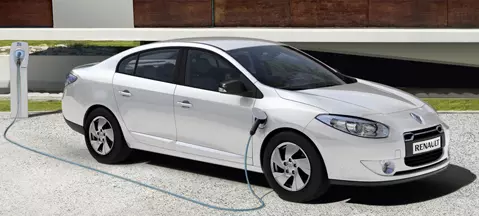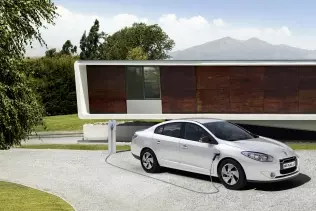- Main page
- Search
- Up to date
- Products
- Technology
- Vehicles
- Video
- Conversion Payback Simulator
Port Injection - Conversion Payback Simulator
Direct Injection - Conversion Payback Simulator
Diesel - Newsletter
EV's - friends or fiends?
 loading results...
loading results...
 © RenaultHuge as the environmental benefits may be, an EV remains reasonable only to house owners. And a garage is preferred
© RenaultHuge as the environmental benefits may be, an EV remains reasonable only to house owners. And a garage is preferredRenault, an ardent proponent of battery-powered vehicles, has been searching for the answer for quite a while now. The company, having invested a hefty 5 billion dollars together with its Nissan sibling, commissioned (back in autumn 2011, actually) an internal report intended to determine the Fluence Z.E.'s impact on the environment on a well-to-wheel basis, as well as compared to petrol- and diesel-powered counterparts. The document has been declassified lately, so that we can inform you of its conclusions. So what do you reckon did Renault analysts find out?
To put it short, EV's proved – over a period of 10 years or a mileage of 160 thousand km – more eco-friendly than their ICE-powered siblings. True, they start their lives with a 60 per cent larger carbon footprint than comparable petrol- and diesel-powered models (which results from the battery manufacturing process), but later on they more than offset it. At least if they're charged with energy coming from the right source. For instance, in France, where energy is mainly generated in nuclear powerplants and from renewable sources (chiefly wind), the Fluence Z.E.'s carbon footprint is by half smaller than in the UK, where power is still quite "dirty”.
And what happens if you compare the EV version of the Fluence with its conventionally-powered siblings? It comes out pretty well, too (at least, again, in France, for the same reason as above), as the battery-powered sedan only generates (not directly, of course) 40% of the CO2 the diesel variant does and only a third of what the petrol model spits out in the air. And that's just CO2, but don't forget about things like nitrogen oxides or particulate matter, generated mainly by diesels, even though their fuel consumption is lower than that of petrol-sippers.
Should you try and make a whole conspiracy theory around the matter and accuse Renault of adjusting the conclusions to their original thesis, let us just say that independent observers scrutinised the French carmaker's test methods and considered them legitimate and objective. So apparently EV's have the potential to save the planet even despite being produced in eco-unfriendly ways, but only under the condition that power to charge batteries comes from clean, renewable resources. Otherwise it's just moving emissions from city centres, where cars are actually driven, into suburbs, where powerplants are located. It still makes sense, but not quite as much as it should.






